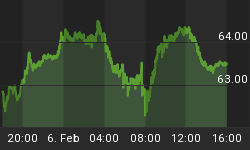With the reporting of a Hindenburg Omen last week, like Pavlov's dog I rushed to check my charts for evidence of the Titanic Syndrome. The creator of the indicator, Bill Ohama, wrote that after the Titanic Syndrome, all major averages/indices will drop at least 10% from their highs. The Syndrome warned of the October 19, 1987 stock market crash as well as others.
The construction of the indicator is best explained by Ohama "The Titanic Syndrome is deceptively simple. Two statistics, printed daily in the financial press, tell you whether the iceberg will wreak disaster. You know you are on board the Titanic when the DJIA hits an all-time high for the year or rallies 400 points and - within seven trading days, before or after this DJIA - the number of yearly lows on the New York Stock Exchange Composite Index (NYSE) exceeds the number of yearly highs."
In the chart below the black price data is the DJIA and the red line is NYSE new 52-week highs minus lows. Twice this year the signal has been triggered and both times it coincided with corrections in equities although not of Titanic proportions. We see again that the 'syndrome' has appeared with new lows exceeding new highs on 12/3/13 just two days after the high on the previous Friday, 11/29/13.
For a free copy of Bill Ohama's article describing the Titanic Syndrome, send your request through the website at Seattle Technical Advisors.com
















